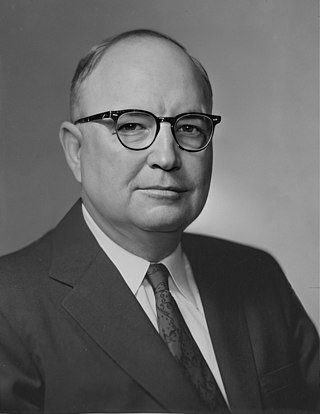Top Qs
Timeline
Chat
Perspective
Eastland v. United States Servicemen's Fund
1975 United States Supreme Court case From Wikipedia, the free encyclopedia
Remove ads
Eastland v. United States Servicemen's Fund, 421 U.S. 491 (1975), was a United States Supreme Court case that defined the limits of Congress's authority to issue subpoenas. In an 8–1 decision, the court found that Congress was within its constitutional authority to issue a subpoena for the banking records of the United States Servicemen's Fund.[1] The U.S. Constitution's Speech or Debate Clause barred the court from questioning the good faith of the committee's investigation.
Remove ads
Background

James Eastland was a Democratic senator from Mississippi, who supported American involvement in the Vietnam War and chaired the Senate Subcommittee on Internal Security. The United States Servicemen's Fund (USSF) was a non-profit organization that was outspoken in its opposition to the war.
Eastland's committee subpoenaed the USSF's banking records.
Consequences
Eastland v. United States Servicemen's Fund was cited in court cases involving the Tax returns of Donald Trump. Trump claimed that Congress had exceeded its authority in subpoenaing the returns.[2]
References
External links
Wikiwand - on
Seamless Wikipedia browsing. On steroids.
Remove ads
